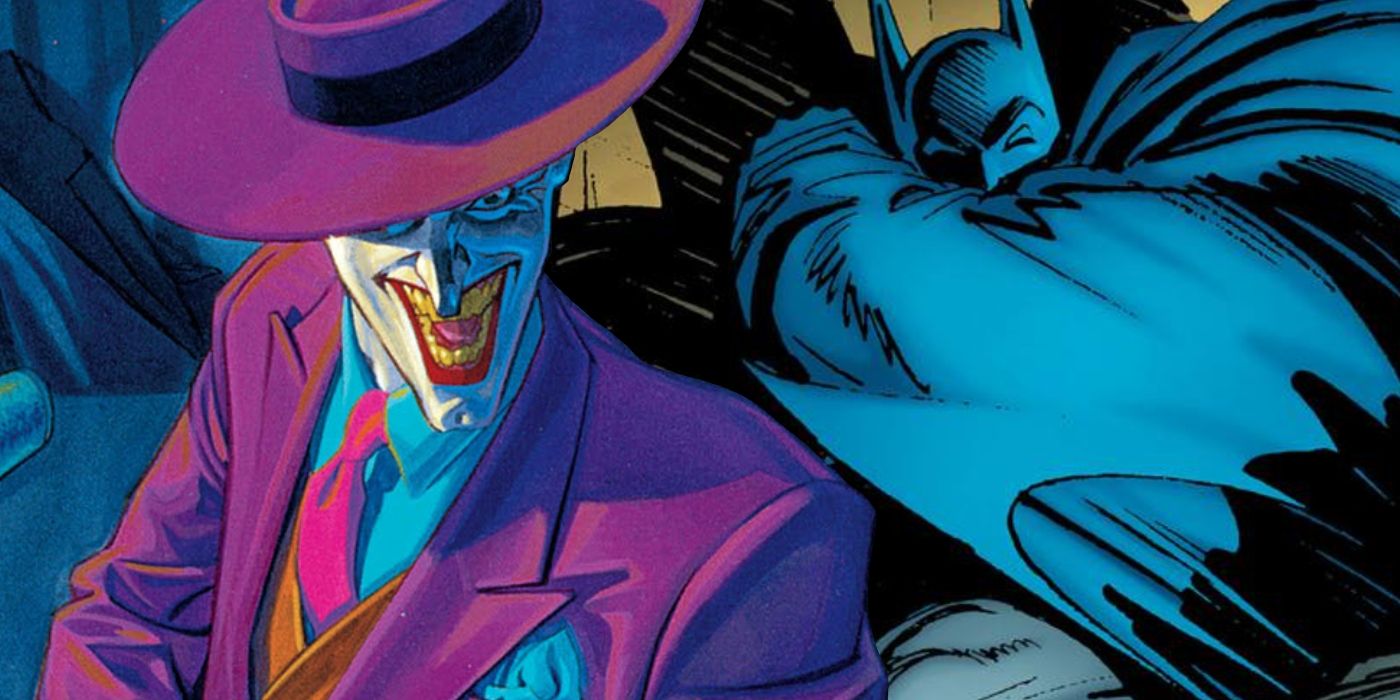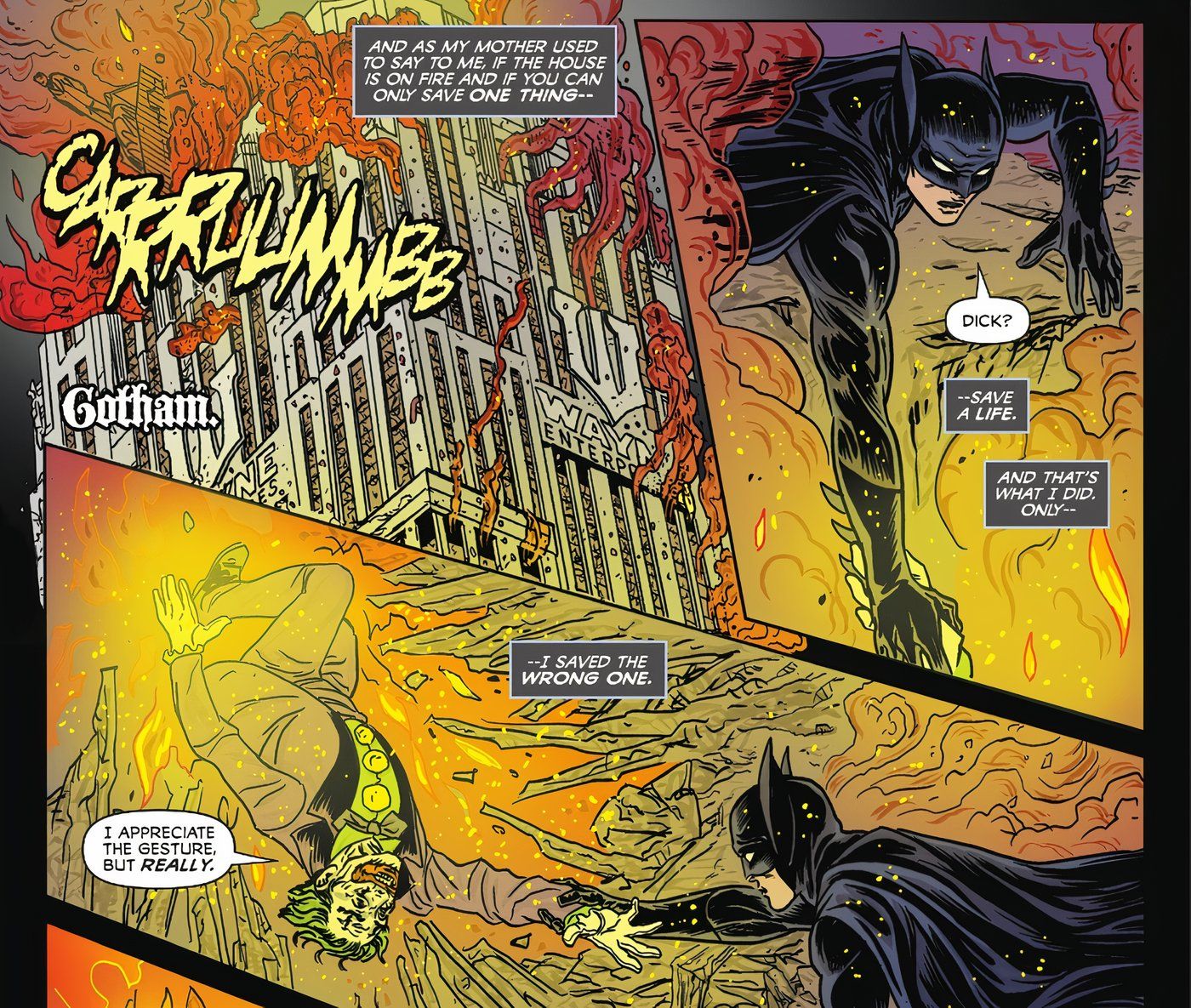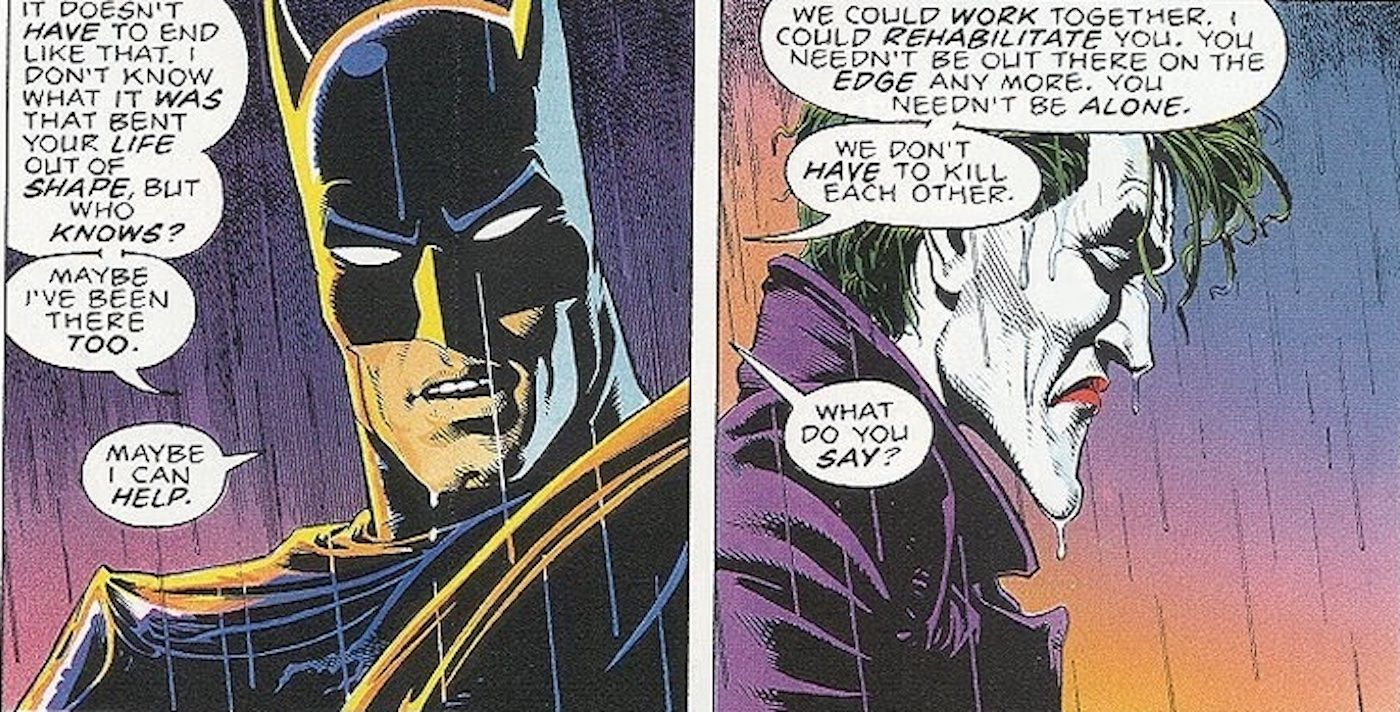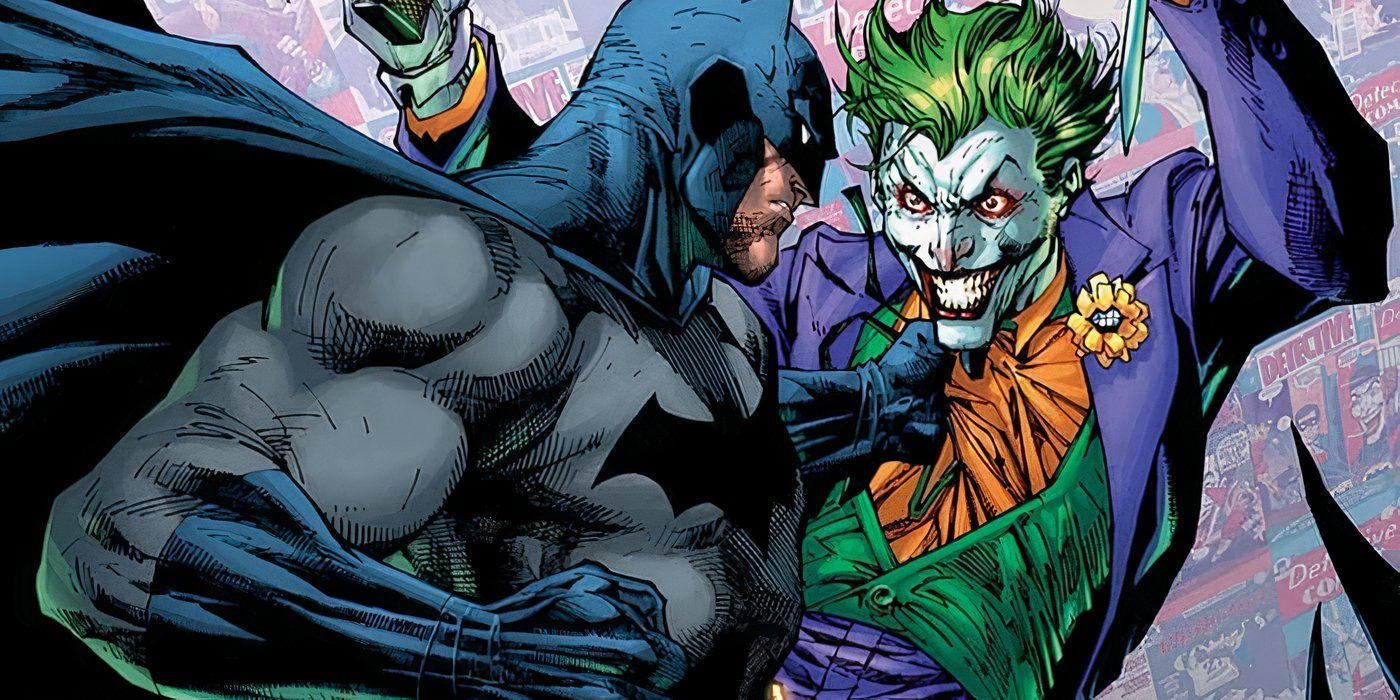
NOTICE! Spoilers for Batman: Dark Ages #6The Joker he was from Batman darkest enemy since his debut in 1940, and although he has been given ample opportunities to kill him, Batman always refuses to take his life. Now, that choice has finally paid off, as the Joker changes his ways as a direct result of Bruce Wayne's influence in an alternate universe. The Joker's redemption arc marks a momentous occasion in DC lore and proves that Batman's mercy isn't entirely unfounded.
Batman: Dark Ages #6 by Mark Russell, Michael Allred, Laura Allred and Dave Sharpe is the final chapter in a unique new take on the Batman mythos, set in the 1960s before continuing over several years. Decades in the future, an elderly Bruce Wayne recounts his time as Batman in an effort to explain the circumstances of Nightwing's untimely death. He explains that Nightwing died when he fell, and when he tried to catch him, he inadvertently caught the Joker's hand.
After Batman saves his life, the Joker is successfully convinced to stop being a villain in an innovative change to his usual characterization that redefines his long-standing rivalry with the Dark Knight.
The Joker gets his long-awaited redemption after Batman saves his life
Thanks to Batman, the Clown Prince of Crime changes his ways
In this universe, the Joker is a comedian and former children's clown from Gotham City, whose fortunes take a turn when he is caught in an explosion caused by Ra's al Ghul at Arkham Asylum. He manages to be one of the few survivors, despite being counted among the dead, but he does not emerge unscathed from the incident. THE The Joker's face has been badly burned and he uses his signature makeup to cover up the gruesome injury. and return to work as a clown. Because of this disturbing new design of the Joker, he is rejected and turns to crime as his only remaining option.
Batman: Dark AgesThe innovative retelling of Batman's story serves as a sequel to Superman: Space Age by the same creative team, available now digitally and in collected editions from DC Comics!
The Joker changes his ways after Batman saves him. He is inspired by Batman to pull himself together, and after a stint in prison, Bruce himself chooses the Joker to help him begin his new life as a positive contributor to Gotham society. Years later, although Bruce has no memory of these events, the Joker assures him that not only did he pay to physically repair the damage done to him, but that Batman gave him a second chance and, as the Joker says, "made me want to live." In at least one universe, Batman has officially redeemed his worst enemy.
Batman's refusal to kill the Joker pays off when the Dark Knight successfully rescues his enemy
Batman finally gets to the Joker after countless failed attempts
Batman has tried to save the Joker many times before. In the main DC continuity, he consistently spares his enemy's life, despite it being a fruitless effort. Batman's “no killing” rule is the crux of his character, prohibiting him from ending the lives of Gotham's most corrupt individuals. This unwavering moral code fuels his refusal to permanently stop the Joker. even after the irreparable harm it caused to innocent people. Much like Thomas Wayne's adherence to the Hippocratic Oath, Bruce adheres to his fundamental belief that the worst of the worst can still be rehabilitated - including, potentially, the Joker.
In The killing joke #1 by Alan Moore and Brian Bolland, Batman expresses his desire to somehow save the Joker. He says, “We could work together. I could rehabilitate you. [...] We don't need to kill each other." Batman and the Joker are perpetually on opposite sides of the war in Gotham, but no matter how low he sinks, Batman continues to spare his enemy because of his loyalty to his moral stance. Despite Batman's endless efforts to get to him, the Joker's attack on Batgirl in this same story proves that, unlike certain variants, he may not be worth saving in the end.
The Joker's ability to redeem varies across DC continuities
Will the DC Universe's Main Joker actually turn good?
This alternate universe's Joker may be good enough to change his wicked ways with Bruce's encouragement, but It's hard to say if the same goes for DC's main Joker continuity.. After all, while Dark AgesThe Joker is a stand-up comedian whose tragic origins may be empathetic, the same cannot be said for the regular version of the Joker.
Even though there are elements of tragedy in his past, the Joker has committed such despicable acts - including the infamous murder of Jason Todd's Robin - that he is likely beyond salvation. Batman may keep trying to catch up, but the Joker hasn't shown any signs of improving in the near future. BatmanGotham's greatest enemy has gone too far after what he did to the people of Gotham, and the Clownhis redemption in this story may well be the only one he gets.
Batman: Dark Ages #6 is now available from DC Comics.


